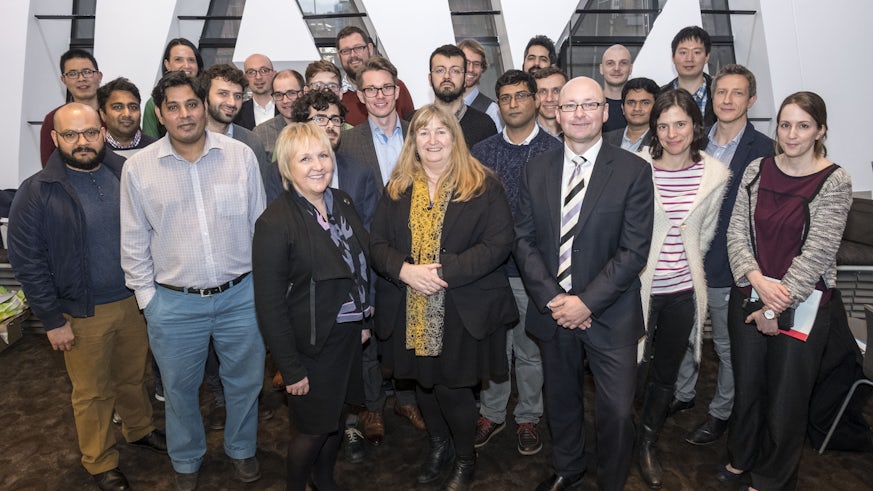Cardiff University welcomes Sêr Cymru II Fellows
2 March 2017

Cohort of aspiring young researchers come together at special reception in Cardiff to celebrate latest stage of Welsh Government programme
Early-career researchers from across the world have been welcomed to Wales as they embark on the next stage of a £45m Welsh Government-funded programme aimed at attracting the brightest minds to the country.
Cardiff University welcomed aspiring researchers from as far as China, New Zealand and the USA who will take up residence at the University as part of the Sêr Cymru II programme.
A total of 20 researchers will take part in the programme at Cardiff University, which involves £29m of European funding, working closely with existing academics on a range of projects, such as the study of brain function, the use of corneal stem cells, tackling the Zika virus, and designing state-of-the-art aircraft materials.
Welcoming the latest tranche of Sêr Cymru II talent at a special reception at the Wales Millennium Centre, Skills and Science Minister, Julie James said: “Increasing our already impressive research capabilities by attracting brilliant new talent to Wales helps to drive up our economic prosperity by creating well paid and stimulating jobs.
“Sêr Cymru really is a partnership approach, bringing together Welsh Government, European and academic resources to deliver a programme that places Wales at the cutting edge of research developments aimed at tackling real issues such as human disease, new energy sources and innovative manufacturing and materials technologies.
“Building our research capacity also makes Wales more attractive for further investment and helps to raise our profile on an international stage. Our research discoveries can also be commercialised, creating more and better jobs for Wales which we aim to develop and keep here.”
Dr Catrin Williams, a Sêr Cymru II Fellow working in the School of Engineering, is studying how electromagnetic fields interact with biological systems.
Speaking ahead of the reception, Dr Williams said: “My area of work is about looking at the impact microwaves (found in common devices such as mobile phones, Wi-Fi and microwave ovens to more advanced equipment such as those used in hospitals for treating cancers and heart diseases) have on living things.
“Some of the current impacts these appliances have on us are quite obvious, for example improved communications, faster cooking times and more effective medical treatments. What are less obvious are the hidden or longer term impacts these microwaves might be having on us, such as potential molecular changes in our cellular make-up.”
Wales’ Chief Scientific Adviser, Professor Julie Williams, added: “This programme will produce a step change in research capacity and put Wales firmly on the map as a centre of scientific discovery. These young people will be the leaders of tomorrow.”
Sêr Cymru II builds on the success of the original Sêr Cymru programme, which supported the establishment of four Sêr Cymru Chairs, two of which are currently based at Cardiff University – Professor Diana Huffaker, Chair in Advanced Engineering and Materials, and Professor Yves Barde, Chair in Neurobiology.